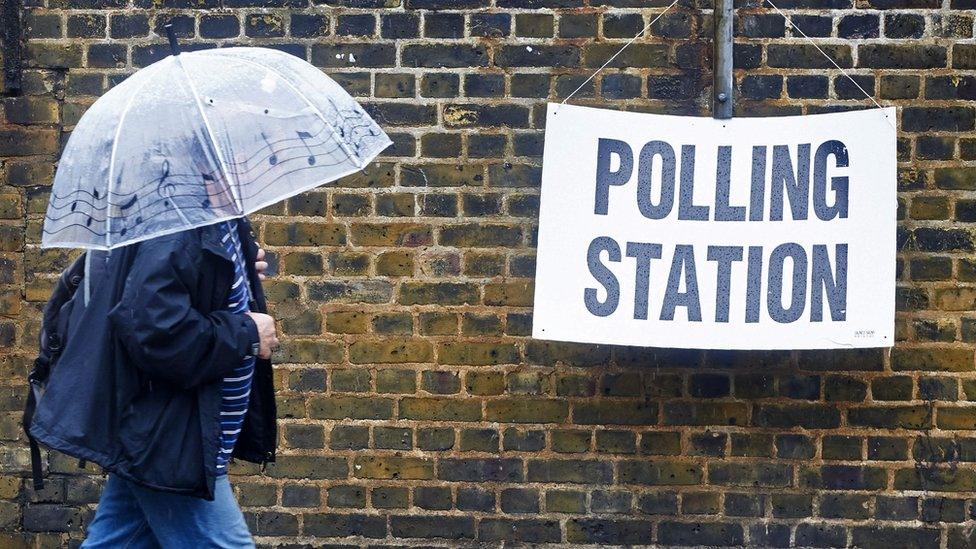Would student vote go missing in December election?
- Published
- comments
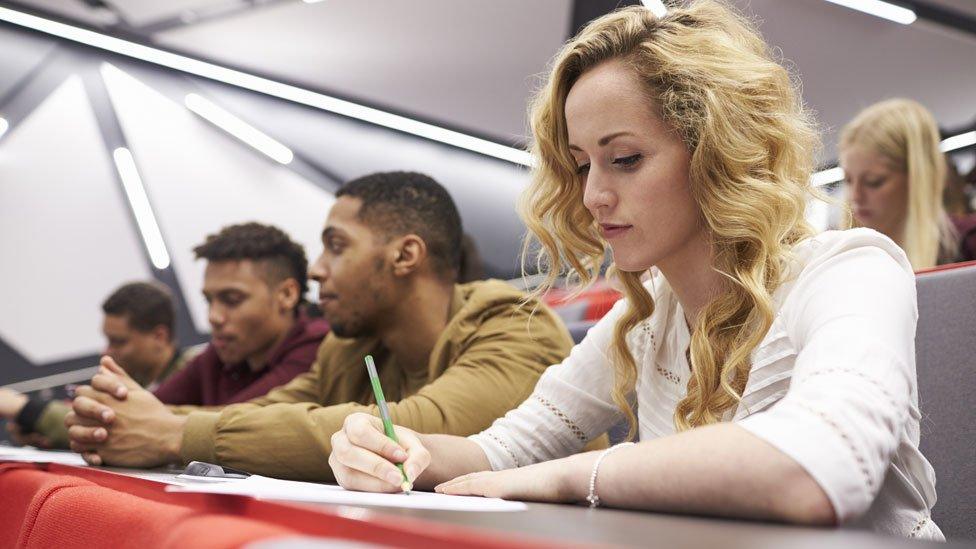
If a general election is held on 9 December, most students in the UK will still be at university - but by the end of that week, most would be heading off for the Christmas holidays.
With potential election dates being debated by MPs, close attention is being paid to the student vote - which is likely to influence the outcome of a number of parliamentary seats with a university population.
And if students are travelling home on the day of an election, they might not vote at all.
In the 2017 general election some seats appeared to have been swung by students.
In Canterbury, a well-organised student vote saw Labour winning the seat with a 20% swing. If that had been in the holidays, as in 2015, it might well have remained a safe Conservative seat.
PM in a student marginal?
There are some prominent figures who might get anxious about being targeted by student voters, particularly when they are marshalled via social media to vote tactically.

Will Christmas holidays change the outcome of votes in university towns?
Boris Johnson has a majority of about 5,000 in his Uxbridge and South Ruislip seat - but the nearby Brunel University has about 10,000 students and staff.
Brunel breaks up at the end of the week beginning 9 December.
So an election date of 12 December would be in the middle of end-of-term departures and the student vote in his Uxbridge seat would be much diminished.
The Christmas parties could have an impact on the political parties.
Tightest votes
An analysis by David Kernohan, for the Wonkhe higher education policy website,, external shows the great bulk of students will be breaking up that week - taking their votes back to their home constituencies, where they may or may not be registered to vote.
There are some that finish earlier - such as Oxford and Cambridge which have shorter terms and which would have, in effect, finished even for a 9 December election.
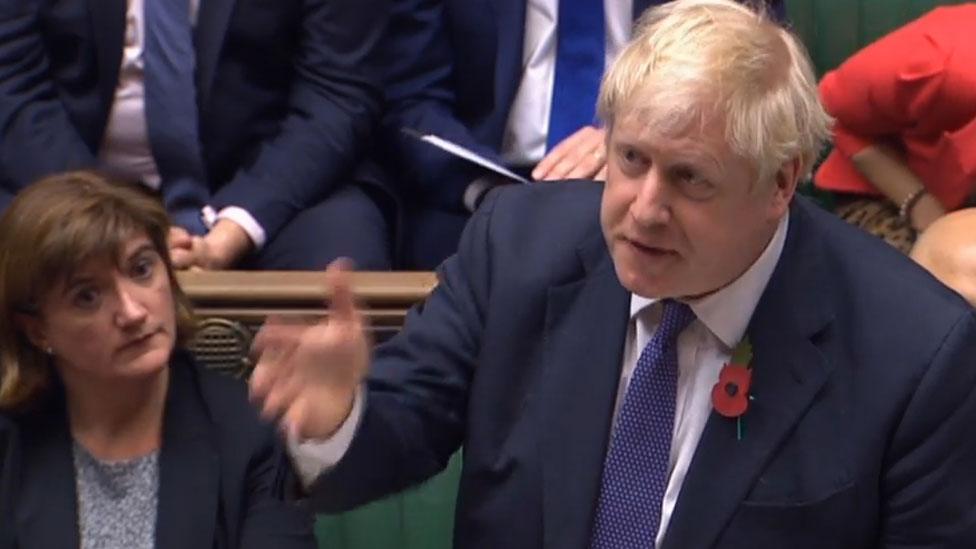
Boris Johnson and Nicky Morgan have majorities smaller than the local student population
There are also more than 30 universities that stay on later than 16 December, including a number in Scotland and several more vocationally based institutions.
But in broad terms, for the student vote to have an impact, an election would need to be not much later then 9 December. Otherwise it would need to wait until January to reassemble.
In terms of where the student vote might shape the result, the tightest race in a university seat is Newcastle-under-Lyme, held by Labour by only 30 votes.
Southampton Itchen is held by the Tories by 31 votes.
There are more than 30 seats with a local university and a majority below 5,000 - and many more with a majority that is smaller than the local student population.
For example, Conservative Minister Nicky Morgan has a majority in Loughborough of about 4,000 - and the nearby Loughborough University has more than 13,000 students and staff.
And if the election was on 12 December a good proportion of those students would have headed off for Christmas.
Labour still top, but not as popular
But which way would students vote? Is it right to assume they will lean towards the left?
New data published on Tuesday by the polling firm YouthSight shows Labour up to 43% among students, from 38% in the summer.
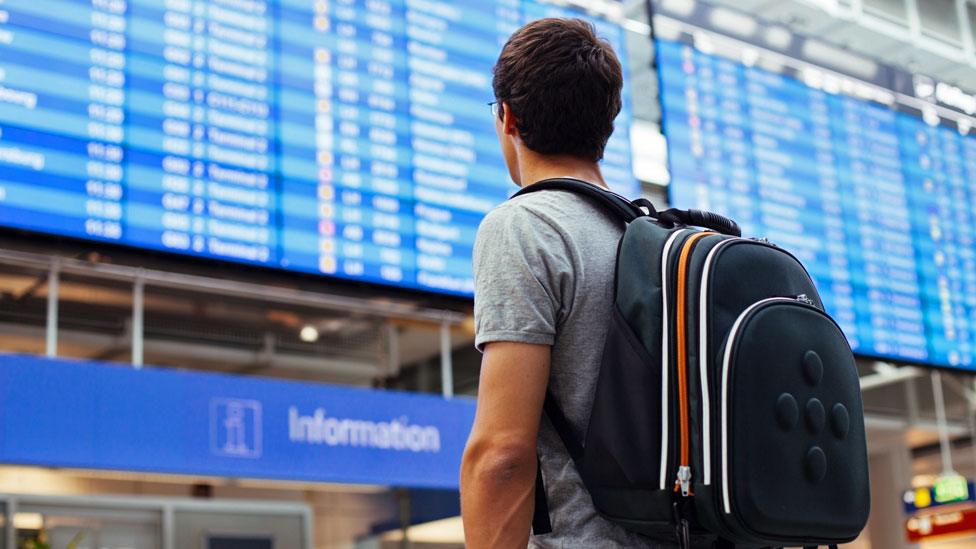
Students could be heading home around the time of a vote on 12 December
The Liberal Democrats, bruised by their epic U-turn on tuition fees under Nick Clegg, are continuing to recover, and now stand at 22%.
The Greens are on 14% while the Conservatives have slipped down to 11%.
The Brexit party is 3% and the SNP are on 2%, Plaid Cymru, DUP and Sinn Fein on 1%.
But it's not plain sailing for Labour. They are far below where they stood a year ago - with leader Jeremy Corbyn's popularity rating tumbling down from +35% to +1%.
There isn't much to comfort Conservatives either - with Boris Johnson's rating with students at -58%, the lowest of any leader in data going back to 2010.
Brexit factor
In terms of what this means for a December election - the polling analysis says the presumption is that "if students vote in their home constituencies the Conservatives will benefit, whereas if they vote in their university constituency, Labour will benefit most".
Of course, there are lots of unknowns. If a student's home is in a marginal seat, then their vote could be more influential there than in a university constituency.
According to YouGov, in the 2017 election only about a quarter of student votes were cast in their term-time address, with most voting at home.
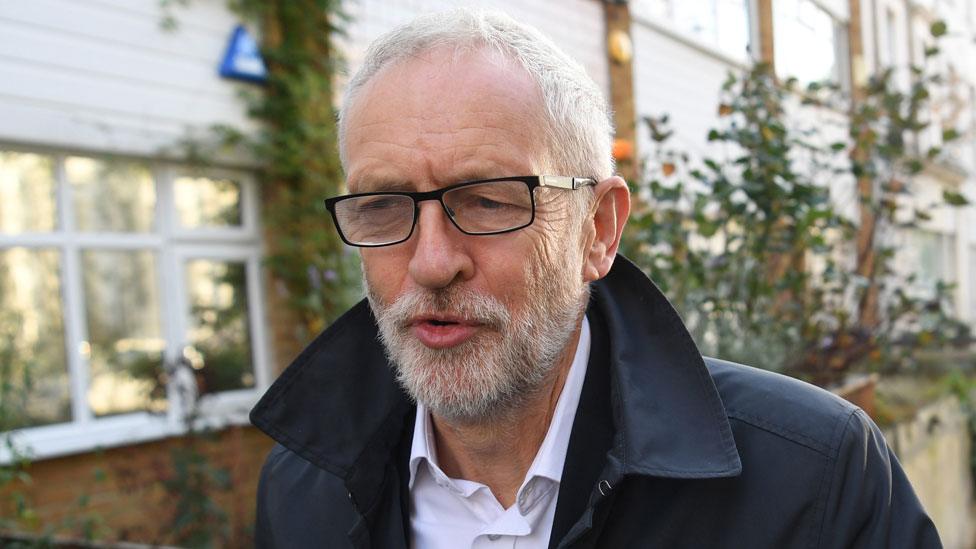
Jeremy Corbyn's popularity has slipped among students, according to the latest polling data
There are other rumbling factors.
Will the Conservatives try to tempt students with an offer to cut tuition fees in England to £7,500, as proposed by a review for previous Prime Minister Theresa May?
How would that work against Labour's promise to scrap fees?
And how will Brexit influence student voters? Even final year undergraduates were too young to vote in the 2016 referendum - so this is a student population which has never had the chance to vote on Brexit.
"The student vote is by no means a single monolithic bloc," says Mr Kernoham. "We don't know if party loyalties or Brexit positions will be more important to them.
"But in a handful of constituencies, what happens at the end of term could shape the result in interesting ways."
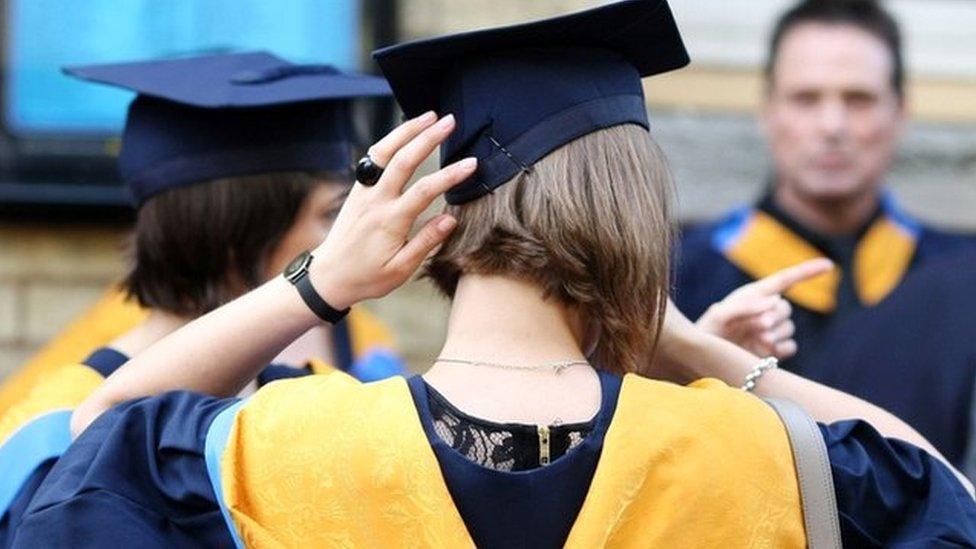
Even many students in their final year will not have voted in the 2016 referendum
Nick Hillman, director of the Higher Education Policy Institute, also cautions on overstating the impact.
Winning seats is different from stacking up votes in already safe-ish seats, he argues.
"It may not make half as much difference as people think," says Mr Hillman.
"A few university seats could be affected to the benefit of Labour, the Lib Dems and possibly the SNP.
"But it is generally forgotten that, sometimes, students voting at their term-time addresses can just increase an MP's existing majority while simultaneously ensuring those same students don't vote in their home seats, which will sometimes be marginal ones," he says.
- Published29 October 2019
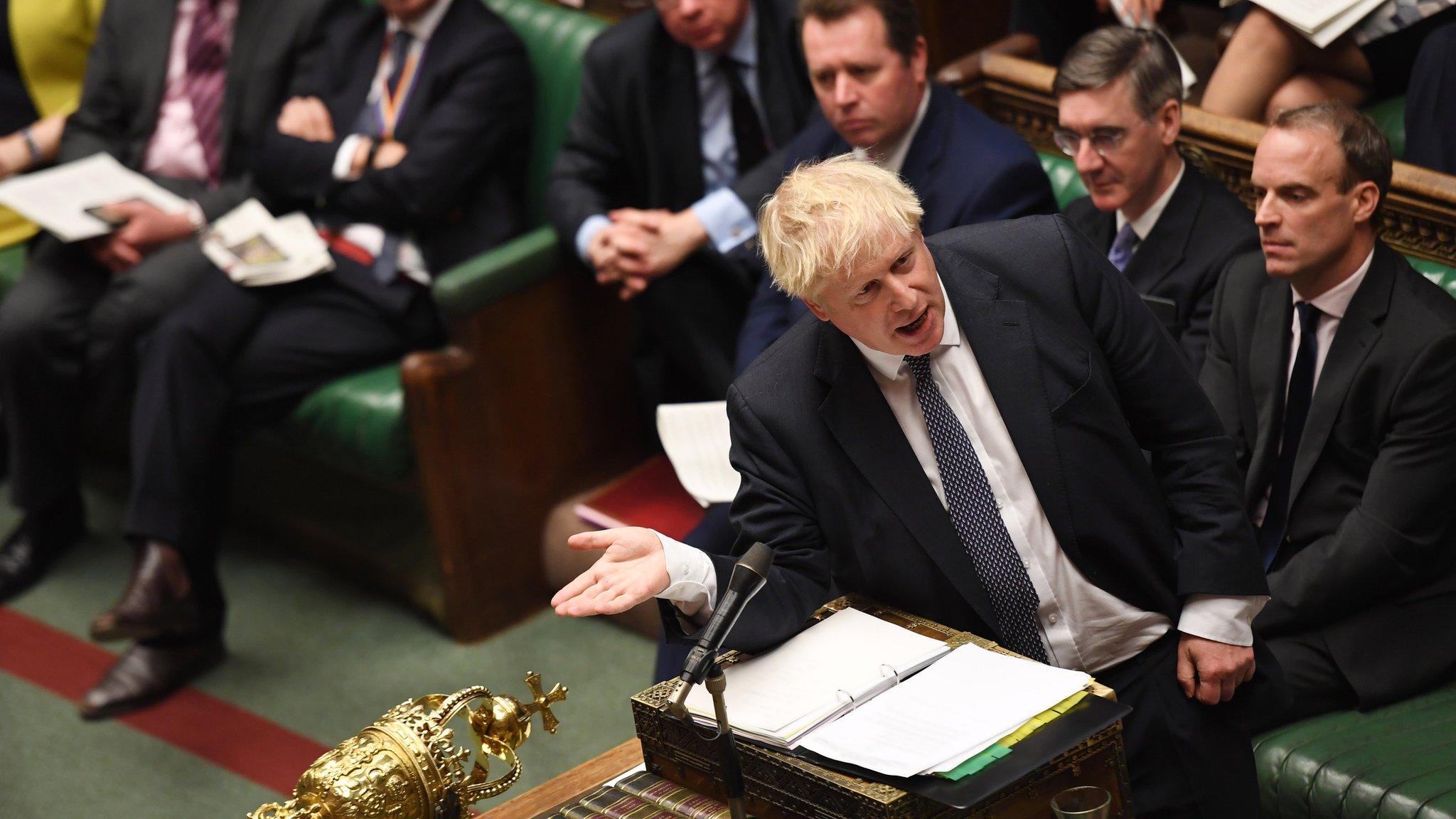
- Published27 November 2019
